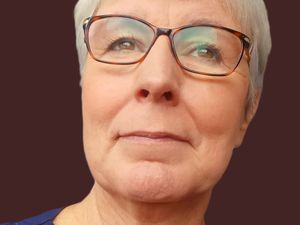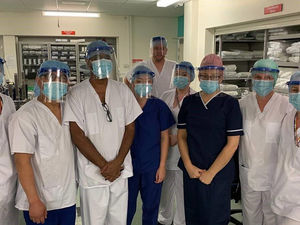A timeline of UK lockdown measures since the pandemic began
The UK has had some form of restrictions in place since March 2020.
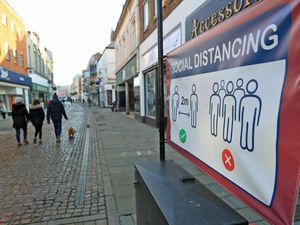
Further lockdown measures have been announced in the UK in the face of rising numbers of coronavirus infections.
Here is a look back at the restrictions which have introduced and eased since the beginning of the pandemic.
– March 12, 2020: Scores of major sporting and cultural events are suspended along with local elections as the UK’s coronavirus death toll rises to 11.
– March 15: Downing Street announces it will hold daily press conferences fronted by Boris Johnson or a senior minister to update the public on the fight against the outbreak.
– March 16: The Imperial College Covid-19 response team warns around 250,000 people will die in Britain unless more draconian measures are adopted.
In the first daily press conference, the PM calls on people to stay away from pubs, clubs and theatres and to avoid all non-essential contacts and travel.
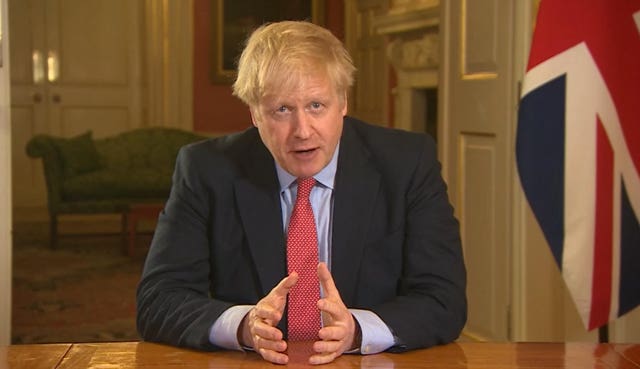
– March 17: The NHS moves to cancel all non-emergency surgery, while Chancellor Rishi Sunak unveils a package of financial measures, including loans worth £330 billion, to help businesses through the coronavirus crisis.
– March 18: It is announced that schools across the UK will close to all pupils except those of key workers, as the coronavirus death toll climbs to 104.
– March 20: Mr Johnson orders pubs and restaurants across the country to close, with cinemas, nightclubs, theatres, gyms and leisure centres also told to shut their doors.
Mr Sunak sets out the coronavirus job protection scheme, with the Government covering 80% of the wages of staff not working, up to £2,500 a month.
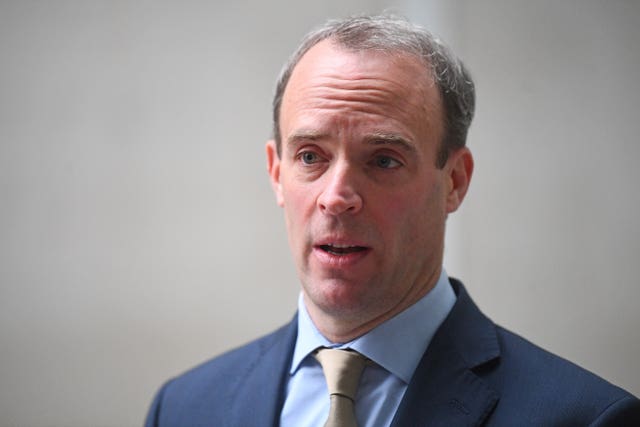
– March 23: Announcing the first lockdown, Mr Johnson tells the UK public that they will only be allowed to leave their homes for limited reasons, including food shopping, exercise once per day, medical need and travelling for work when absolutely necessary.
All shops selling non-essential goods are told to close, gatherings of more than two people in public are banned, events including weddings – but excluding funerals – are cancelled.
Foreign Secretary Dominic Raab tells Britons travelling abroad to return home while they still can.
– March 25: Sweeping emergency powers to tackle Covid-19 are set to become law after clearing the House of Lords without amendment.
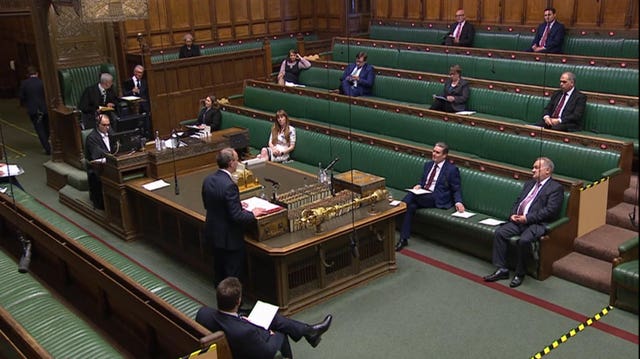
– April 16: Mr Raab, deputising for the Prime Minister, who is recuperating after being taken to hospital with coronavirus, announces that lockdown measures will be extended for at least three more weeks.
– April 30: In his first Downing Street press conference since being admitted to hospital, Mr Johnson says the country is now “past the peak of this disease”.
– May 10: Mr Johnson announces the first easing of England’s lockdown, telling people they are allowed to sunbathe in parks and leave the house to exercise more than once a day.
He says England may be in a position “to begin the phased reopening of shops” and get primary pupils back to school in steps staggered by year groups “at the earliest by June 1”.
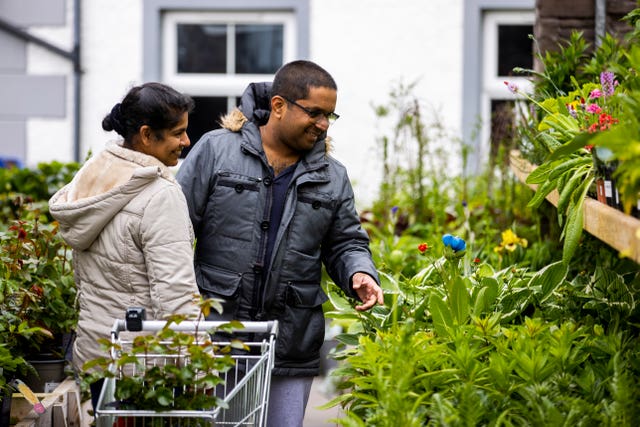
– May 11: Garden centres can reopen and people will be allowed outdoors for unlimited exercise in pursuits such as tennis, golf, lawn bowls and basketball under the new changes.
People must keep two metres away from others and are also encouraged to wear face coverings in enclosed places.
– May 24:Mr Johnson confirms there will be a phased reopening of England’s primary schools.
– May 25: Mr Johnson announces plans for shops across England to open in June if they can meet the coronavirus guidelines to protect shoppers and workers.
Outdoor markets and car showrooms could open from June 1 and all other non-essential retailers – such as those selling clothes and books – will be allowed to open from June 15, provided the Government’s five tests are met.
– May 28: Mr Johnson announces groups of up to six are allowed to meet outside.
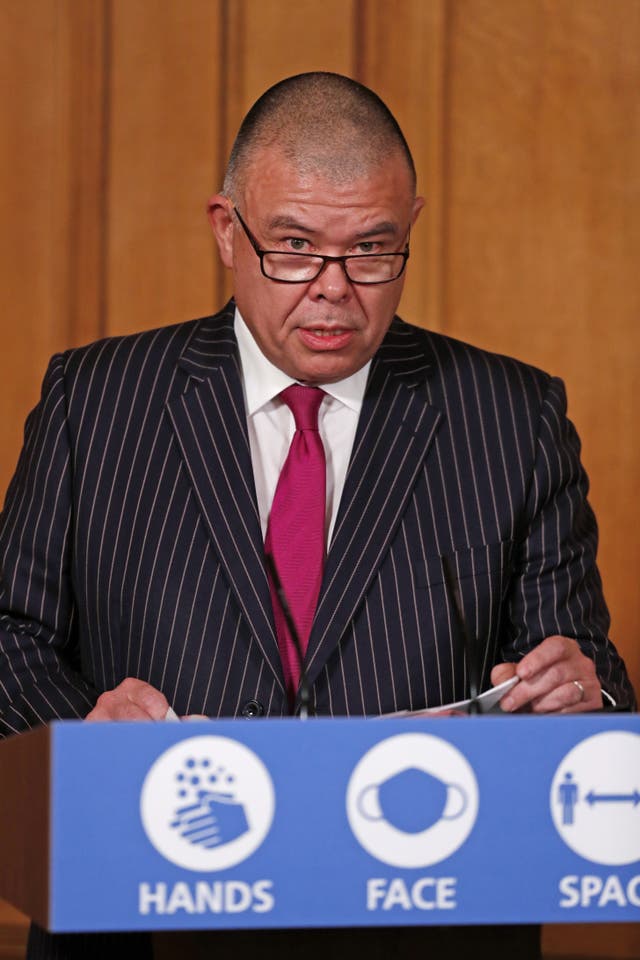
– May 30: England’s deputy chief medical officer Professor Jonathan Van-Tam says Britain is facing a “very dangerous moment” with the easing of lockdown restrictions.
At the same press conference, Culture Secretary Oliver Dowden announces that elite sport events will begin behind closed doors from June 1.
– June 1: Lockdown measures are eased, with schoolchildren in England in Reception, Year 1 and Year 6 returning to the classroom.
– June 2: MPs approve the Government’s plan to end virtual voting in the Commons.
– June 5: The Health Secretary urges people not to break lockdown rules by attending protests planned following the death in the US of George Floyd.
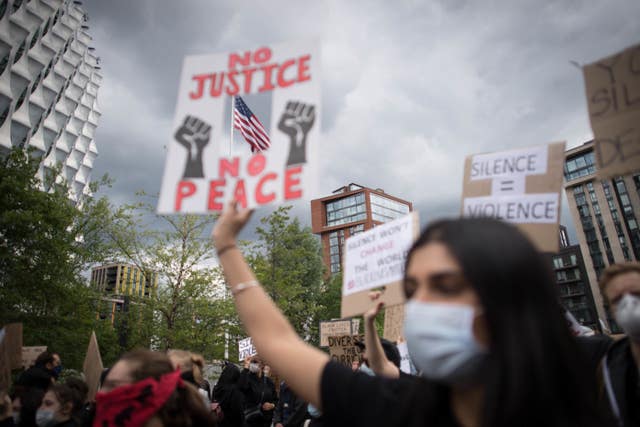
– June 15: England’s retail parks, high streets and shopping centres welcome customers, while zoos and safari parks open their doors for the first time since March.
Places of worship reopen for private prayer, while some secondary school pupils have begun returning to their classrooms.
– June 19: The UK’s chief medical officers agree to downgrade the coronavirus alert level from four to three after a “steady” and continuing decrease in cases in all four nations.
– June 23: The Prime Minister holds the final daily coronavirus press conference, but reassures the public it will not be the last time they hear from the Government and its advisers.
– June 26: Mr Johnson warns people against “taking liberties” with social distancing rules after thousands flocked to beaches during the heatwave.
The Department for Transport announces that public transport services in England will be ramped up, while ministers confirm the requirement to quarantine for two weeks will be scrapped for a list of popular destinations.
– June 29: A local lockdown is imposed on Leicester by Mr Hancock following a spike of coronavirus cases in the city.
It comes as the rest of England moves to ease restrictions on places of social gathering such as pubs and restaurants from July 4.
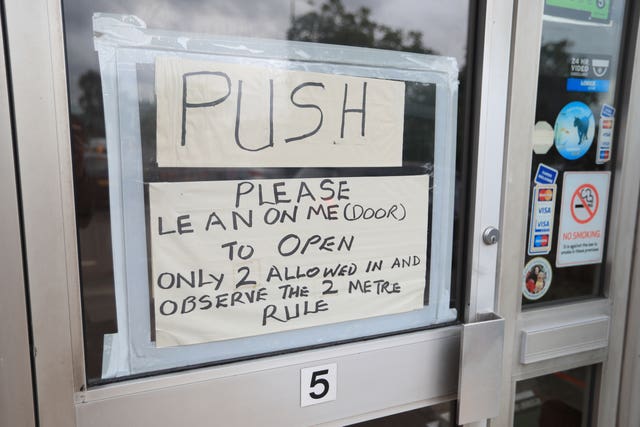
– July 3: A list of 73 countries and territories where English tourists can visit without self-isolating on their return is published, including popular short-haul destinations such as Spain, France and Italy.
– July 4: Pints are poured in pubs, and couples finally say “I do” as lockdown restrictions are eased across England.
– July 13: Beauty salons, nail bars and tattoo shops in England welcome customers for the first time in four months following the relaxation of social distancing measures.
– July 16: Mr Hancock announces a partial lifting of lockdown measures in Leicester, but restrictions on non-essential travel and only having social gatherings of up to six people remain in force.
– July 17: Mr Johnson eases the work-from-home guidance as he sets out plans for a “significant return to normality” in England from as early as November.
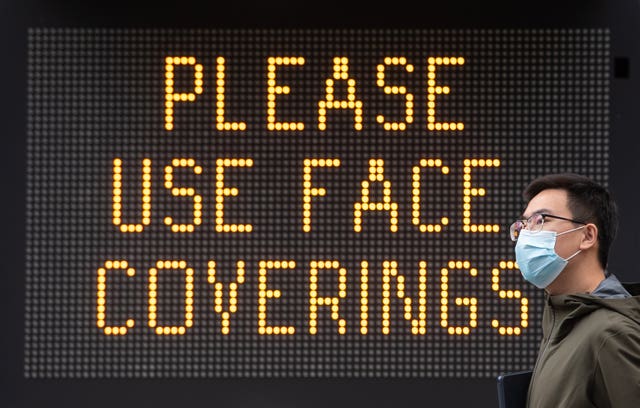
– July 24: Face coverings become mandatory in shops across England, with £100 fines for people who flout the rules.
– July 27: The National Police Chiefs’ Council says 16,029 fines for alleged breaches of coronavirus regulations were issued by police forces in England and 2,640 by those in Wales between March 27 and July 20.
– July 30: People who test positive for coronavirus or display symptoms must now self-isolate for 10 days as Mr Hancock warns of a “second wave starting to roll across Europe”.
People from different households in Greater Manchester, parts of east Lancashire and West Yorkshire are banned from meeting each other inside their homes or in gardens following a spike in cases.
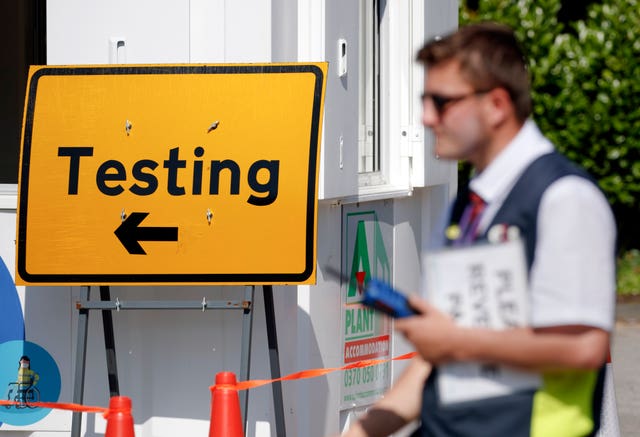
– July 31: Measures due to be lifted on August 1, including allowing small wedding receptions, reopening bowling alleys and casinos and pilots of larger gatherings in sports venues, are delayed for at least two weeks.
– August 1: Shielding advice for people deemed clinically extremely vulnerable during the peak of the pandemic is paused in England and Scotland.
– August 3: The Government’s Eat Out To Help Out scheme launches, with restaurants, pubs and cafes offering half-price meals to diners during August.
– August 24: The Prime Minister issues a plea to parents to send their children back to the classroom when schools reopen.
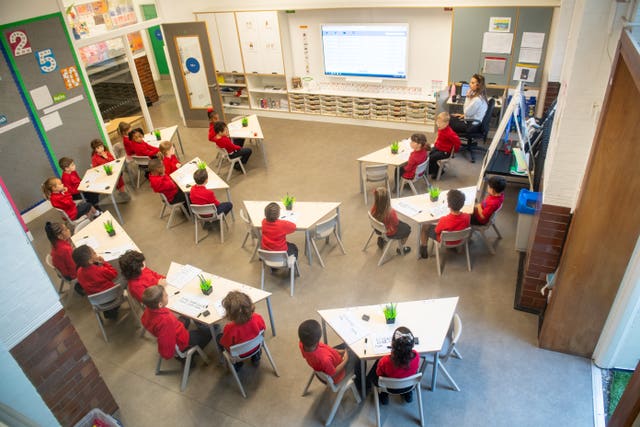
– August 28: Those facilitating or organising illegal raves, unlicensed music events, or any other unlawful gathering of more than 30 people may now face a £10,000 fine, as tougher measures come into force before the bank holiday weekend.
– September 8: Mr Hancock warns of a possible second peak following a “concerning” rise in the number of cases.
Social gatherings of more than six people will be illegal in England from September 14, ministers announce, as the Government seeks to curb the rise in coronavirus cases.
– September 11: The R value of coronavirus transmission across the UK rises above 1 for the first time since early March, according to Government advisers, with the estimate between 1.0 and 1.2.
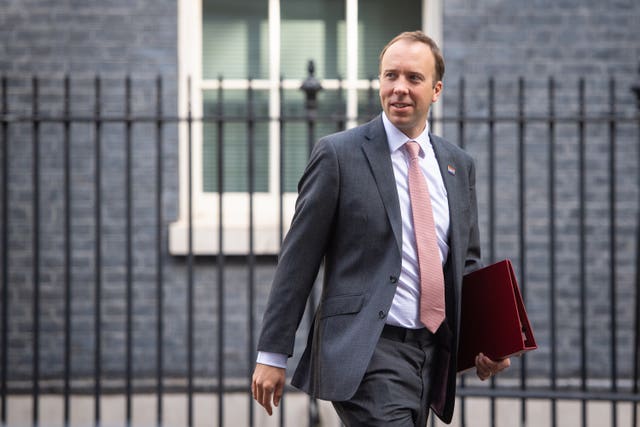
– September 18: Mr Johnson warns that a second wave of coronavirus has arrived in the UK.
Sage estimates the R number – representing the number of people an infected person will pass the virus to – at between 1.1 and 1.4, meaning cases could rise very quickly.
Parts of England’s North West, West Yorkshire and the Midlands face tough new restrictions in response to “major increases” in cases.
– September 19: The Government warns that people in England who refuse an order to self-isolate will face fines of up to £10,000.
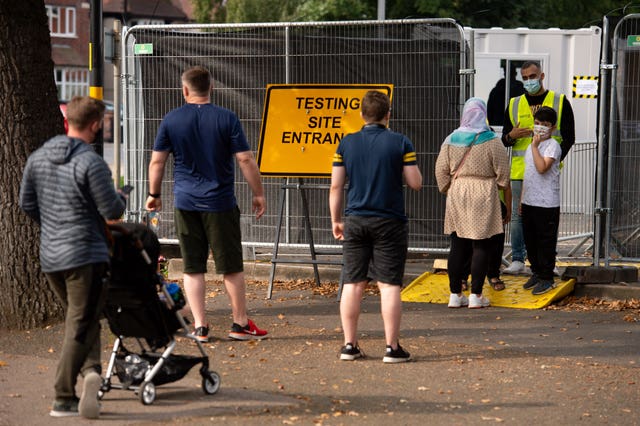
– September 21: Chief scientific adviser Sir Patrick Vallance tells a televised briefing the UK could see 50,000 cases a day by mid-October and a daily death toll of 200 or more a month later unless urgent action is taken.
– September 22: The Prime Minister prepares to announce new restrictions including a 10pm curfew on pubs, bars and restaurants in England from September 24.
Cabinet Office minister Michael Gove recommends that people now work from home if able to do so.
– October 9: Mr Sunak announces that workers in pubs, restaurants and other businesses forced to close under new restrictions will have two-thirds of their wages paid by the Government.
– October 12: The Prime Minister launches a three-tier system of local alert levels for England, with the Liverpool City Region the only area to be placed in Tier 3 – very high – category.
– October 15: Greater Manchester Mayor Andy Burnham accuses the Government of treating the North with “contempt” as a row erupts over proposed restrictions in the area.
– October 20: Following more than a week of negotiations, Mr Johnson imposes Tier 3 restrictions on Greater Manchester after talks aimed at reaching an agreement end in acrimony.
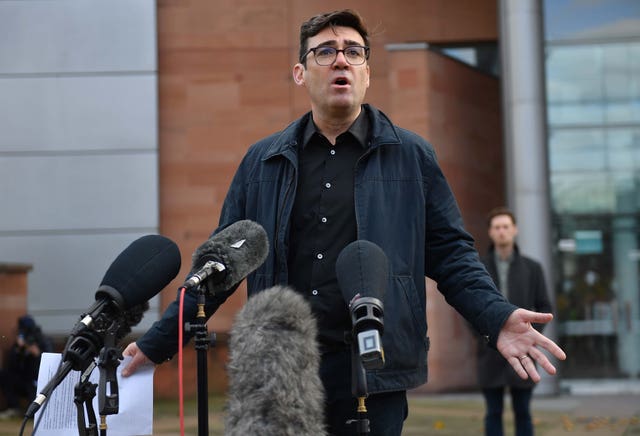
– October 23: First Minister Nicola Sturgeon sets out a five-level plan of measures for dealing with the coronavirus pandemic in Scotland.
– October 31: The UK exceeds one million lab-confirmed cases of coronavirus since the start of the outbreak, according to Government data.
Meanwhile, Mr Johnson announces that people in England will be told to stay at home for four weeks as the country is placed under another national lockdown, with the closure of hospitality and non-essential shops.
– November 5: Mr Sunak tells the Commons that the jobs furlough scheme is being extended until the end of March in a major Government U-turn.
– November 7: The UK Government imposes a ban on non-UK citizens coming from Denmark following concerns over a new strain of Covid-19 that has spread from mink to humans.
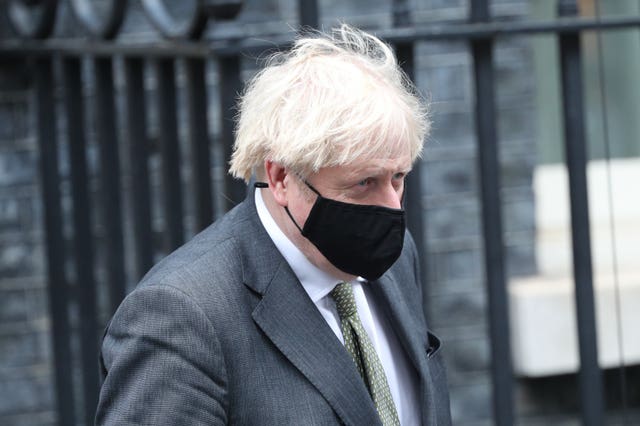
– November 24: The UK Government and devolved administrations agree on plans allowing families to reunite over the festive period by forming “Christmas bubbles”.
– December 1: Mr Johnson suffers his biggest Commons rebellion as 55 Tory MPs oppose the introduction of new tiered coronavirus restrictions to replace England’s lockdown, but the measures go through despite the revolt.
Meanwhile, the UK’s Covid-19 death toll passes 75,000.
– December 2: England’s national lockdown comes to an end and is replaced by a strengthened three-tier system.
– December 14: Mr Hancock tells MPs a new strain of coronavirus has been identified in southern England, with the number of cases involving the new variant “increasing rapidly”.
Tougher restrictions are imposed on London and parts of Essex and Hertfordshire following “very sharp, exponential rises” in cases.
– December 17: Mr Hancock announces that Bedfordshire, Buckinghamshire, Berkshire, Peterborough, Hertfordshire, Surrey (with the exception of Waverley), Hastings and Rother (on the Kent border of East Sussex), and Portsmouth, Gosport and Havant in Hampshire will all move into Tier 3 from December 19 – a total of 38 million people which is 68% of the population of England.
– December 19: The Prime Minister cancels Christmas for almost 18 million people across London and eastern and south-east England by moving them into a newly created Tier 4 for two weeks – effectively returning to the lockdown rules of November – after scientists warn of the rapid spread of the new variant VUI 202012/01.
In the rest of England, the planned Christmas easing of the restrictions – allowing three households to meet over the festive period – is severely curtailed to apply to Christmas Day only.
The move is mirrored by the devolved administrations in Scotland, Wales and Northern Ireland.
Welsh First Minister Mark Drakeford announces alert level 4 restrictions will be brought forward to apply across the nation from midnight, with non-essential retail, close contact services, gyms and leisure centres and hospitality closing.
– December 26: Northern Ireland sees a form of curfew introduced from 8pm, with shops closed from that time and all indoor and outdoor gatherings prohibited until 6am.
Non-essential retail closes for the next six weeks, as well as close-contact services, while hospitality outlets are limited to takeaway services.
– December 30: It is announced that an additional 20 million people in England will move to the tightest restrictions, making a total of 44 million in Tier 4, or 78% of the population.
– January 4, 2021: Nicola Sturgeon announces Scotland will go into lockdown for the rest of January, with a legal requirement to stay at home and schools closed to most pupils until February.
The Covid-19 alert level should be raised to five – the highest setting – a joint recommendation from the UK’s chief medical officers says.
Later that evening, in a televised address, Boris Johnson announces a third national lockdown for England which will see schools shut to most students and people urged to stay at home to prevent the NHS being overwhelmed by surging coronavirus infections.


